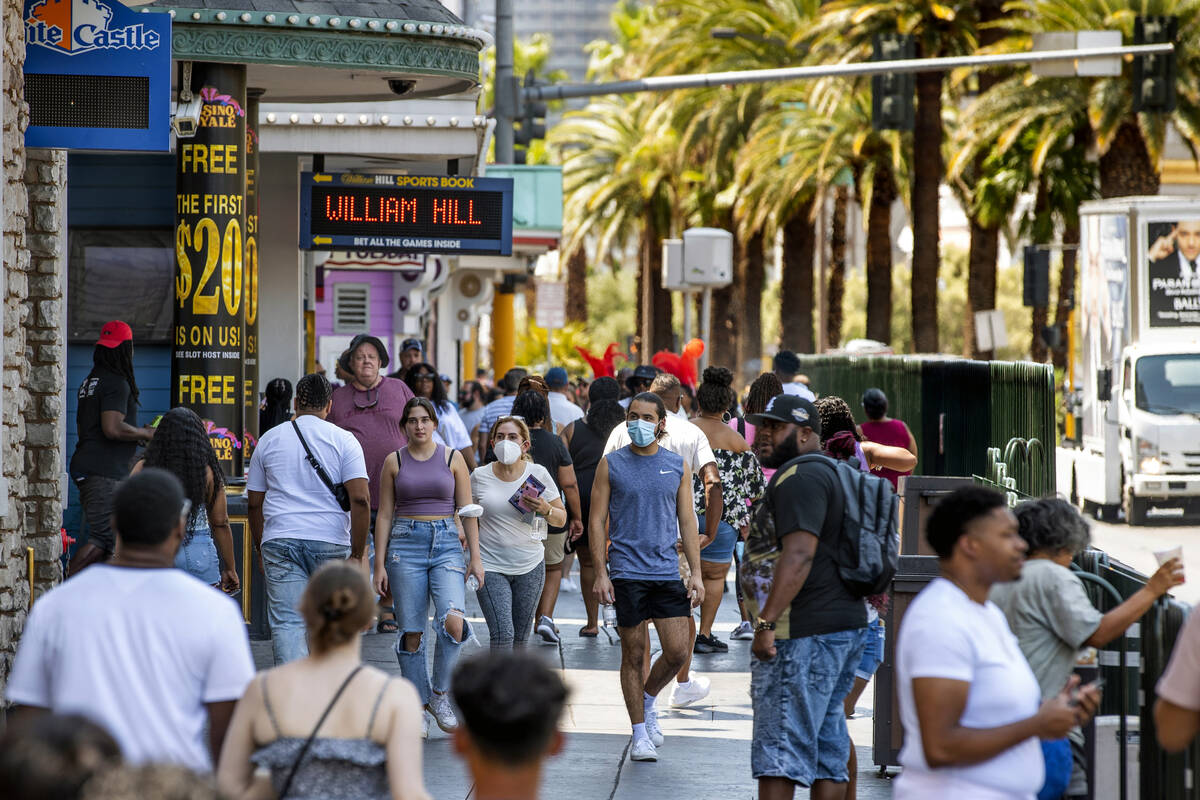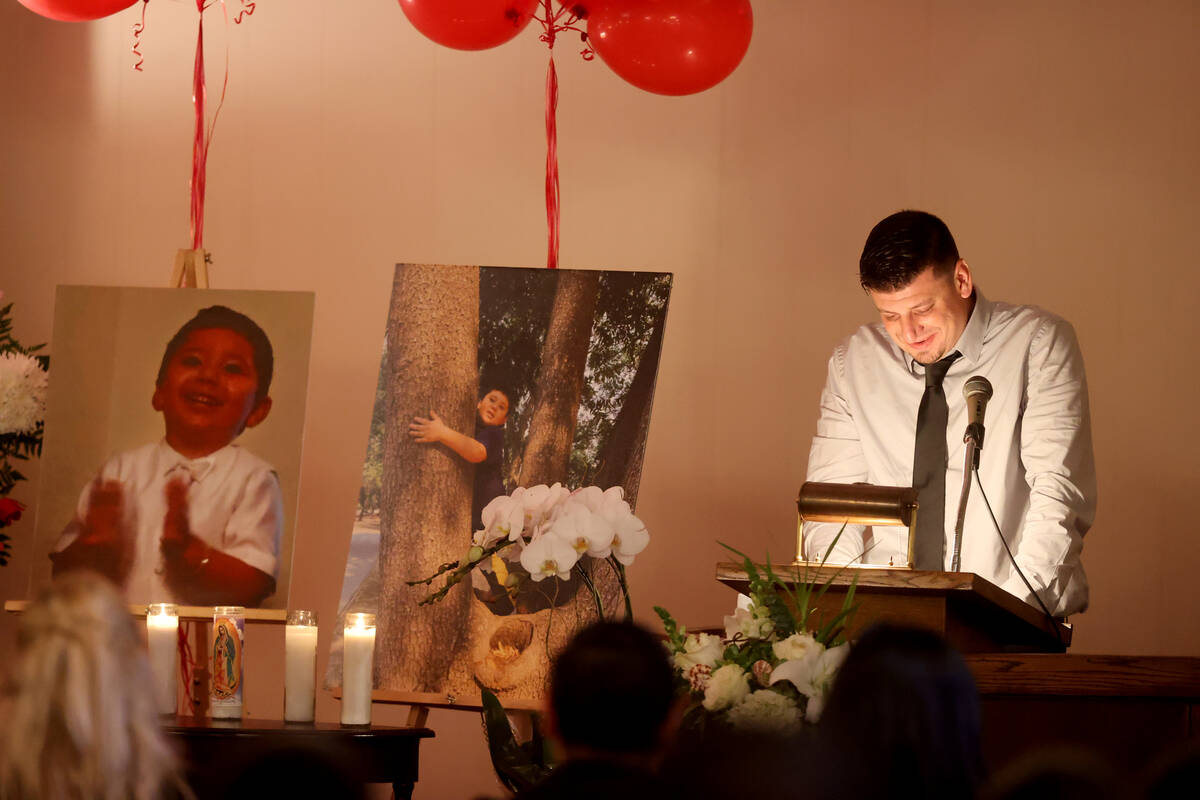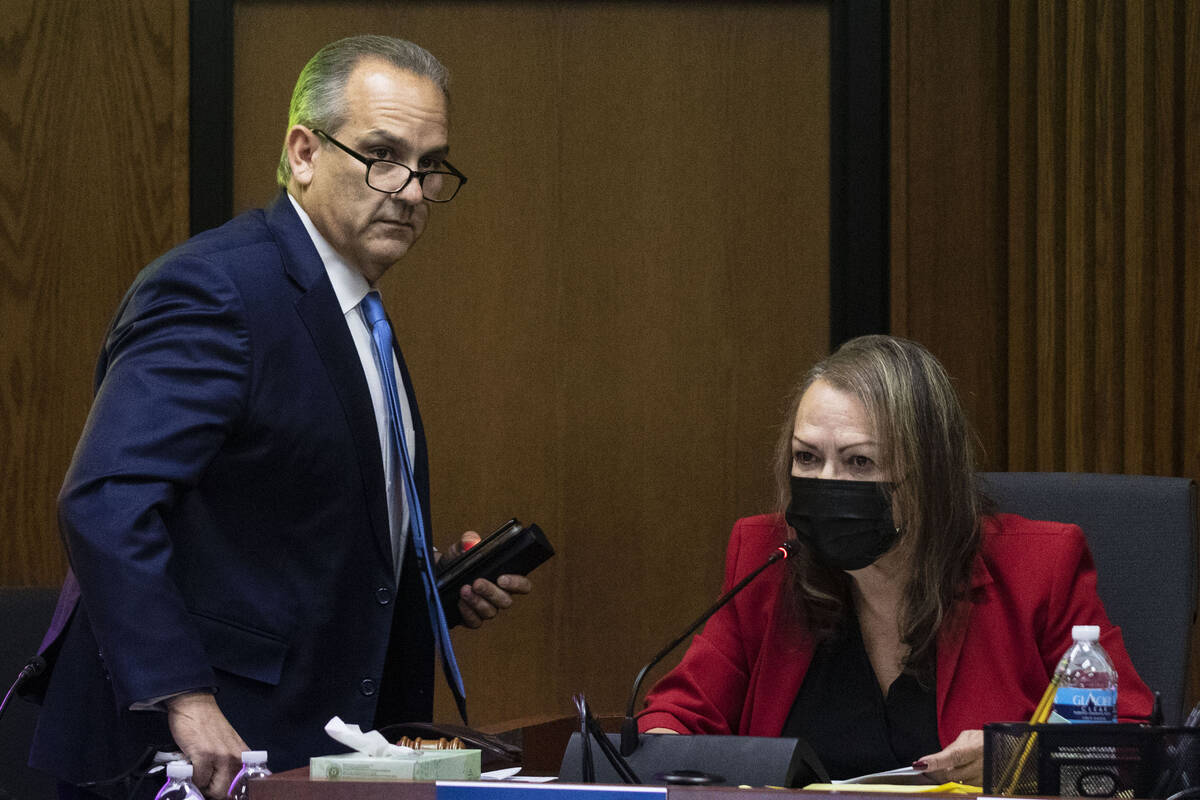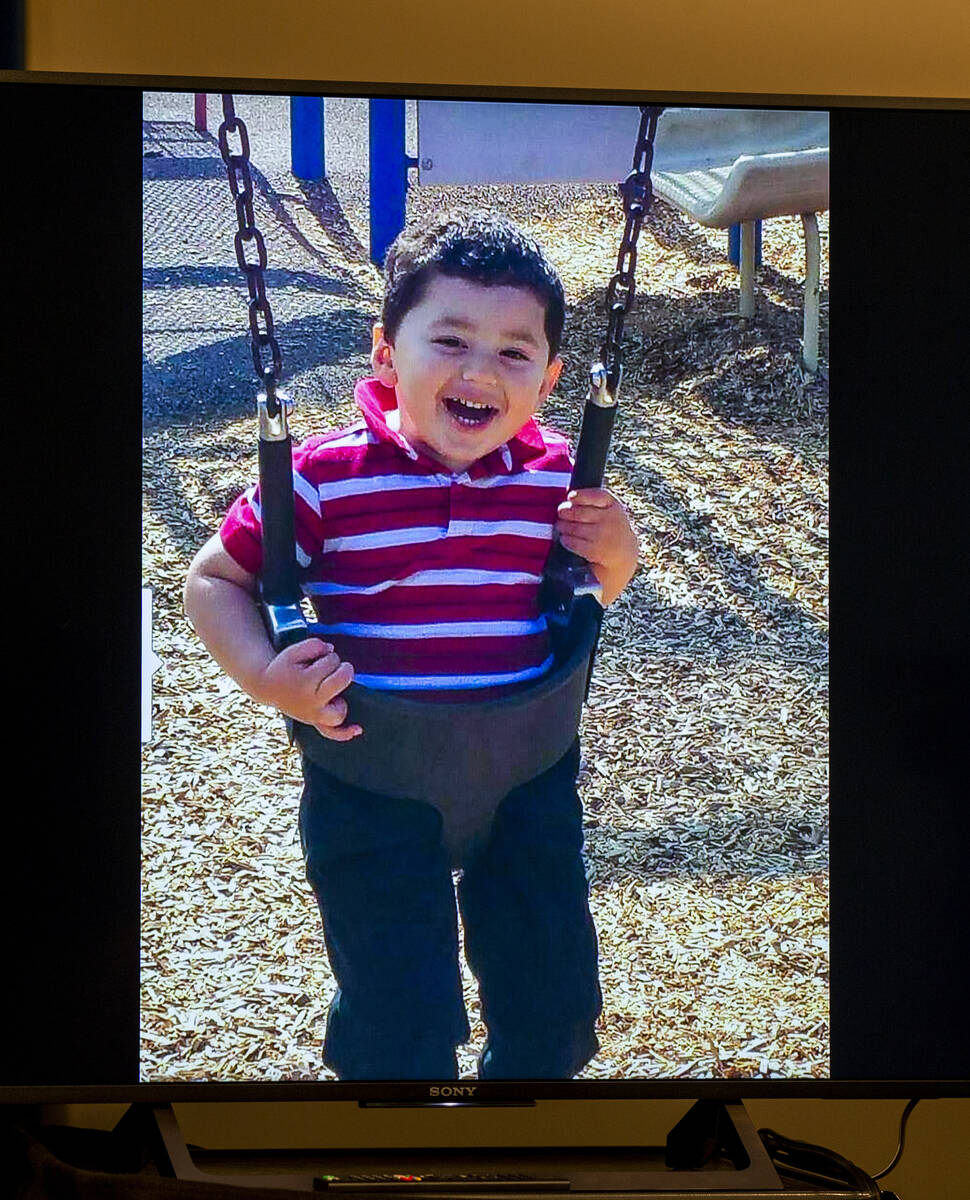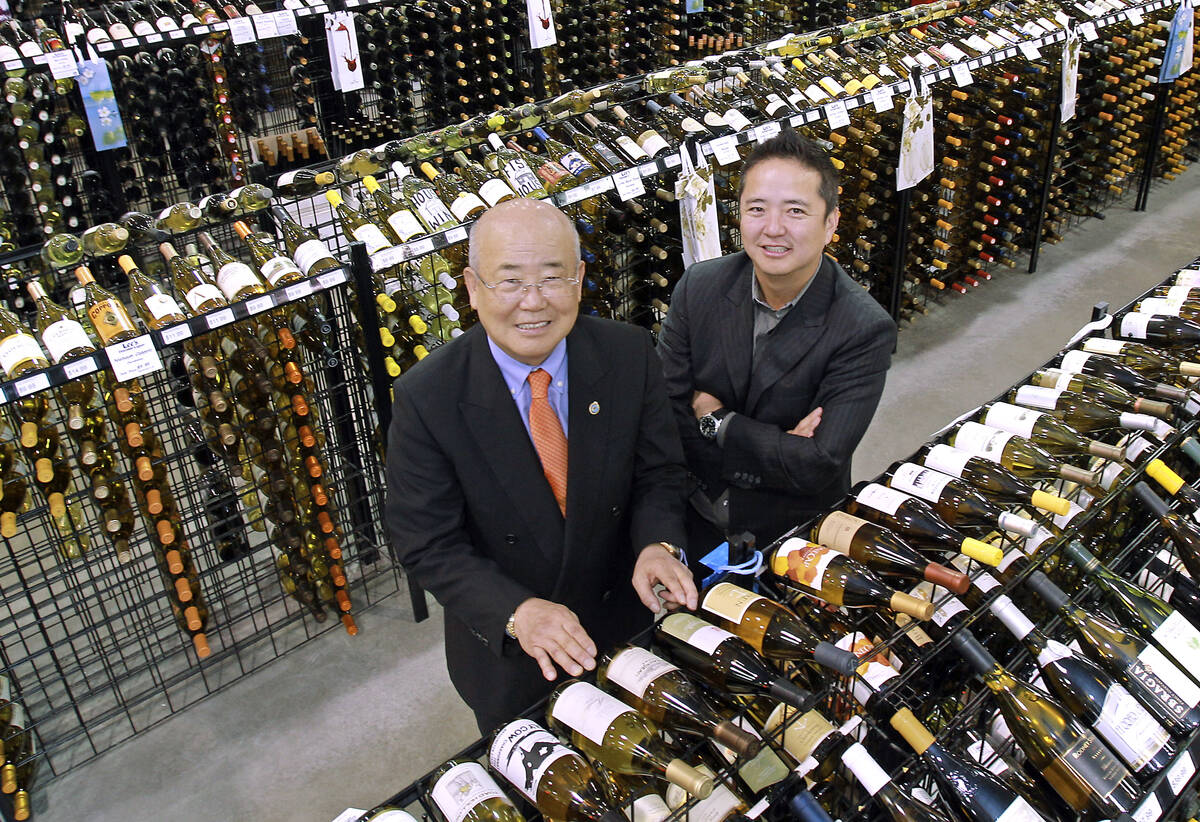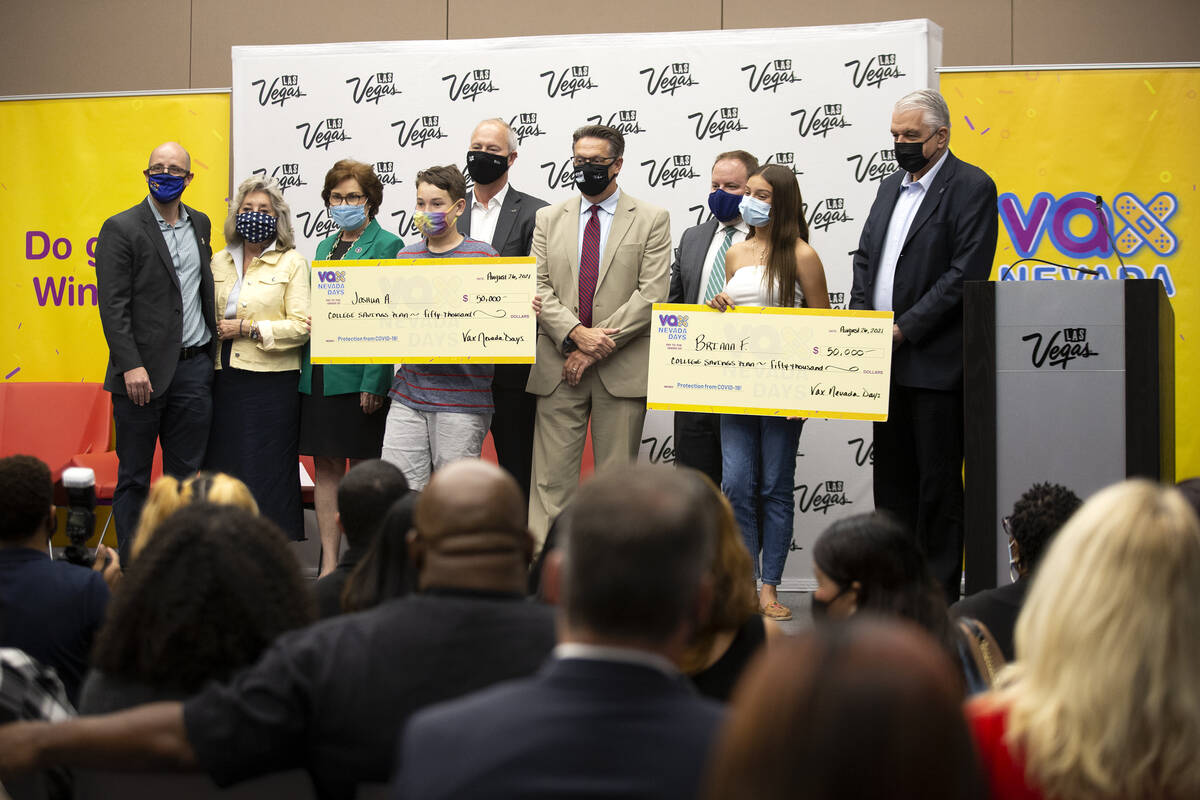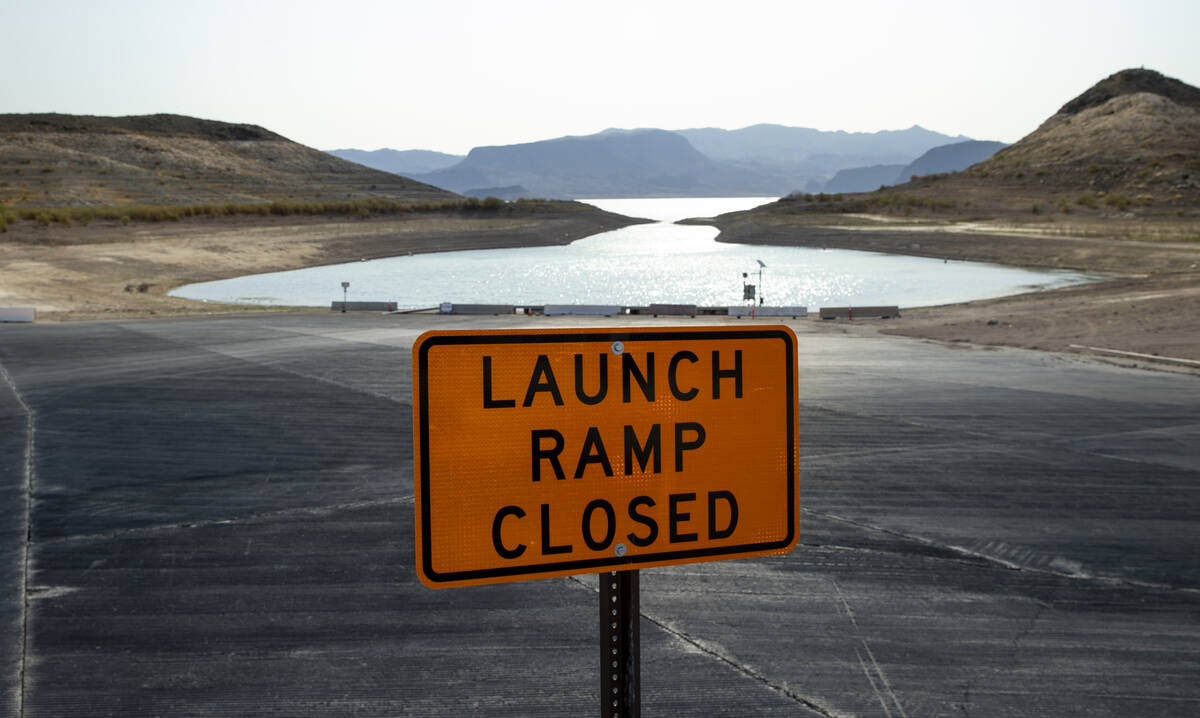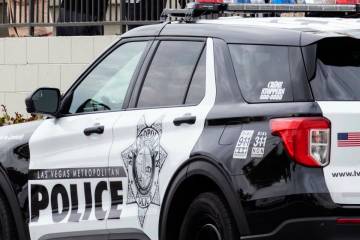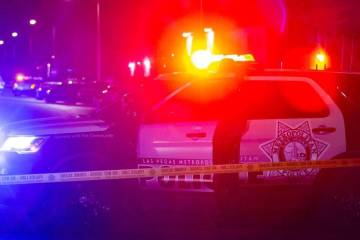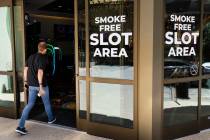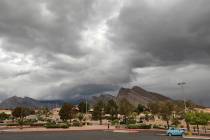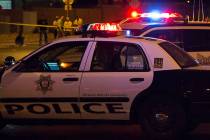COVID-19 response tops list of 2021’s biggest stories
The global COVID-19 pandemic once again commanded center stage in 2021, with the year bookended by optimism over the widespread rollout of vaccines and then uncertainty about a particularly contagious coronavirus variant as 2022 neared, raising fears of another fierce outbreak. ■ As students in Southern Nevada returned to in-person instruction, the Clark County School District was marred by infighting and tenuous leadership. Allegiant Stadium finally opened to fans, but the organization and community were shaken when a Raiders wide receiver was charged with driving under the influence in a crash that killed a young Las Vegas woman. ■ There were other notable deaths in 2021, as well as scandals, high-profile crimes, environmental crises and policy debates. Here are the top stories from the year.
1. Nevada’s response to the pandemic
Vaccines were introduced to older Nevadans in mid-January and extended to the broader population in the months that followed, providing hope of turning a corner in the fight against the pandemic. Clark County lawmakers fully reopened the county on June 1 amid declining rates of COVID-19 cases, even as many residents remained hesitant — and still do — to get doses of the vaccine.
Nearly one-third of adults in the county have yet to be fully inoculated.
As cases surged in the summer, Gov. Steve Sisolak instituted an indoor mask mandate that is still in place, and cases fell again in the fall, but rates are expected to climb during the holiday season.
Officials are uncertain how the omicron variant will affect the degree to which cases increase, but the more contagious form of the disease is being carefully watched. State officials have said that early studies indicate booster shots provide more substantial protection against the mutant than a one- or two-shot regimen.
As substantial progress was made in 2021 to defend against the coronavirus and billions of dollars in federal aid poured into the state, other bulwarks were ended: A federal eviction ban expired July 31, and enhanced jobless benefits ceased in September.
State lawmakers passed a bill to slow the eviction process if a tenant has a pending rental assistance application, and Clark County provided tens of millions of dollars in aid to tens of thousands of people but faced ongoing scrutiny for lengthy delays amid massive demand.
The state’s unemployment rate dipped to 6.8 percent, down from 7.2 percent in October, but is still the second-highest jobless rate in the U.S. The gaming and tourism industry made strides — big investments and plans for new hotels on and off the Strip were good signs — but the sector remains in recovery mode with visitor volume yet to reach pre-pandemic levels.
2. Henry Ruggs charged in fiery crash
Henry Ruggs, a Las Vegas Raiders wide receiver selected in the first round of the 2020 NFL draft, was criminally charged after a pre-dawn Nov. 2 crash that killed 23-year-old Tina Tintor and her golden retriever, Max, in the southwest valley.
Ruggs, 22, was driving significantly impaired at 156 mph in a residential area only seconds before his Corvette struck the rear of Tintor’s Toyota RAV4 with “such violent force” that the SUV burst into flames, authorities said. Ruggs was charged with DUI resulting in death and other felonies, including for injuries suffered by his longtime girlfriend Rudy Washington, who was in his passenger seat.
Ruggs was released by the Raiders less than 24 hours after the wreck. He pleaded not guilty to charges, and he faces up to 40 years in prison if convicted.
Tintor’s death resonated with the community at large. At a vigil, memorials and a dog walk, people remembered a young woman with a friendly smile who aspired to be a computer programmer. She “was a force to be reckoned with in the best possible way,” according to one friend.
3. Jesus Jara is fired, reinstated
Clark County School District Superintendent Jesus Jara was ousted by the School Board in late October and then reinstated a few weeks later, capping off a tumultuous period of division among school leaders.
After he agreed to return to head the nation’s fifth-largest public school district, Jara, who had been fired without a formal cause, called for refocusing attention on student safety, mental health and “unfinished learning.” School trustees vowed to work to mend their relationship with the embattled superintendent.
In reinstating Jara, the board agreed to assurances to respond to his allegations of a hostile work environment, harassment and retaliation involving unnamed “certain members of the board.” The claims had been outlined in a legal demand letter from his attorney that sought $2 million to resolve the accusations.
Jara, who was hired in 2018, received both criticism and praise when his contract was terminated on Oct. 28. His detractors pointed to a poor district culture that resulted in losing educators while supporters said he had shown compassion for students and had been receptive to new ideas.
Jara’s contract, paying him $320,000 in annual salary, runs through Jan. 15, 2023.
4. Allegiant Stadium opens to vaccinated fans
The $1.9 billion Allegiant Stadium welcomed fans for the first time in the Raiders’ second season in Las Vegas, but spectators 12 years and older had to be vaccinated against COVID-19.
The Raiders were the first team in the NFL to announce a policy that fans who were fully vaccinated did not need to wear a mask; those who were partially inoculated or under the age of 12 were required to sport a face covering.
The Raiders also offered vaccines on site before home games.
While the team struggled to fill the stadium during a disappointing season, despite selling out personal seat licenses in January 2020, there was renewed excitement in Las Vegas by the December announcement that Allegiant Stadium would host the Super Bowl in 2024.
5. Remembering Lee’s Discount Liquor’s father and son
The founder of the popular chain, Lee’s Discount Liquor, died of pancreatic cancer less than three months before his son, who served as the family business’s chief executive, was killed in a car crash in Northern Nevada.
The deaths of Hae Un Lee, 79, and Kenny Lee, 53, drew renewed attention to the father and son’s charitable giving and the establishment’s unlikely success story.
The elder Lee, who died in August, immigrated to the U.S. from South Korea and opened his first liquor store in Las Vegas, Plaza Liquor, in 1981. He slept at his first store and was tenacious about growing an empire, according to longtime friend, Larry Ruvo.
The chain operates in 22 locations today.
Hae Un Lee’s nonprofit, Lee’s Helping Hand Foundation, gave millions of dollars to organizations in Southern Nevada, according to company representatives, including to the philanthropic arm of the Cleveland Clinic Lou Ruvo Center for Brain Health.
Kenny Lee was also known for his kindness and charity. “They are one of the most generous, giving, philanthropic families in our entire state,” Gov. Steve Sisolak said of the Lee family during Kenny Lee’s vigil.
6. Strangling death of Liam Husted
The naked body of Liam Husted, a 7-year-old boy with autism spectrum disorder, was found in May by hikers off the highway between Las Vegas and Pahrump, near the Mountain Springs Trailhead.
His mother, Samantha Moreno Rodriguez, was charged with strangling the boy to death. She pleaded not guilty in August after being tracked down in Denver.
Rodriquez killed her son after becoming frustrated with him during a hike and shoving him to the ground, where he struck his head, authorities said. When he would not stop crying, she strangled him for 10 to 15 minutes, Metropolitan Police Department homicide Detective Robert Ochsenhirt told grand jurors.
The two had arrived from San Jose, California, with Rodriguez in search of affordable housing, Ochsenhirt said. The boy’s father, Nicholas Husted, who was in California when his son was killed, called Liam “one in a trillion,” a brilliant kid who was fearless, would help to chop veggies in the kitchen and had a contagious giggle.
7. Lake Mead water shortage
Federal officials in August declared a federal water shortage at Lake Mead for the first time in the reservoir’s history, following two decades of drought that has strained the Colorado River, a vital water source for 40 million people.
The declaration by the U.S. Bureau of Reclamation will force Nevada to slash its allocation of Colorado River water in 2022. Lake Mead, which is the country’s largest reservoir, supplies about 90 percent of Southern Nevada’s water.
The region is not expected to immediately feel the squeeze of a shortage declaration because the area already conserves water. John Entsminger, general manager of the Southern Nevada Water Authority, said officials in the state have been preparing for a shortage since at least 2002.
8. Death penalty sparks debate
Experts testified in November and December about the state’s proposed execution of death row inmate Zane Floyd, continuing a debate about how to effectively and humanely proceed with carrying out Floyd’s sentence for fatally shooting four people and gravely wounding a fifth more than two decades ago.
Floyd, 46, was also convicted of repeatedly raping a woman before the shooting at a Las Vegas grocery store in 1999.
The state plans to employ a never-before-used drug cocktail including ketamine to kill Floyd, who would become the first inmate in Nevada to be executed since 2006.
Experts called by the state say the drug cocktail proposed by Nevada probably would render Floyd unconscious and insensate within seconds. Experts called by Floyd’s lawyers, however, testified it could cause extreme suffering while he is paralyzed and suffocating.
The state’s supply of ketamine will expire in late February, the same month that Nevada plans to execute Floyd. The Nevada Supreme Court has yet to rule on appeals of Floyd’s conviction, which must be resolved before the state’s plan can move forward. Prosecutors had sought to put Floyd to death in July before a federal judge stayed the execution.
9. Death of Nathan Valencia
Nathan Valencia, a 20-year-old UNLV student, died in November after participating in a fraternity-sponsored boxing match at the Sahara Event Center.
The fraternity was suspended by UNLV, and the Nevada Athletic Commission unanimously passed emergency regulations called “Nathan’s Law” that require organizers to have emergency medical personnel and trained referees in amateur boxing matches and unarmed combat.
Hundreds of Valencia’s family, fraternity brothers and classmates celebrated his life and birthday during a late November vigil at UNLV. Las Vegas police said they did not find evidence of criminality on behalf of the venue where the fight occurred.
10. Real Water scandal
The Food and Drug Administration announced in March that it had launched an investigation into Las Vegas-based Real Water, a bottled water company linked to a deadly outbreak of liver disease.
In response to a lawsuit from the federal government, company President Brent Jones, a former Nevada lawmaker, agreed to recall and destroy any Real Water products in May. A local attorney filed separate lawsuits on behalf of dozens of people who got sick and another who died after drinking Real Water.
FDA investigators found the company did not test processed tap water before it was bottled at plants in Henderson and Mesa, Arizona, according to a federal complaint. The company had also hired a man with almost no experience in the business to oversee testing at its Henderson plant.
Contact Shea Johnson at sjohnson@reviewjournal.com or 702-383-0272. Follow @Shea_LVRJ on Twitter.



